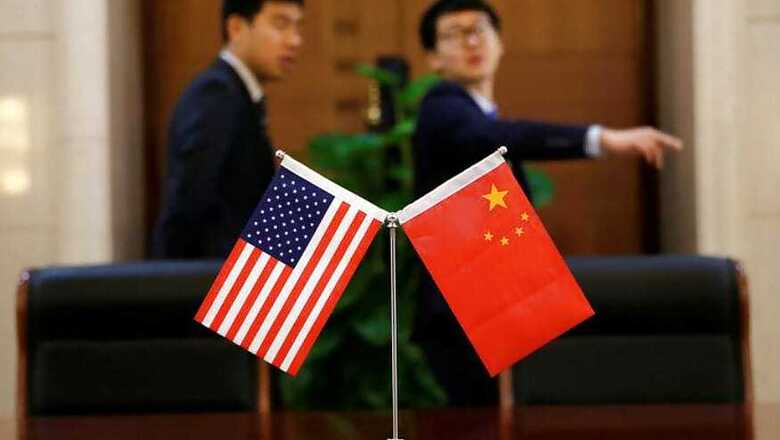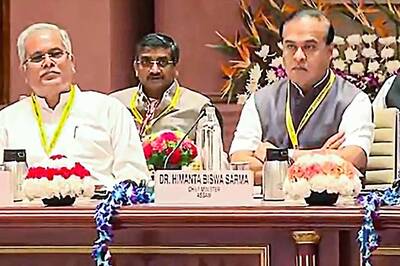
views
Washington/Beijing: US President Donald Trump on Friday said he was in no hurry to sign a trade deal with China as Washington imposed a new set of tariffs on Chinese goods and negotiators ended a second day of talks to try to salvage an agreement.
The United States early on Friday increased its tariffs on $200 billion in Chinese goods to 25% from 10%, rattling financial markets already worried the 10-month trade war between the world's two largest economies could spiral out of control. China is expected to retaliate.
The tariffs went into effect just hours before U.S. Trade Representative Robert Lighthizer, U.S. Treasury Secretary Steven Mnuchin and Chinese Vice Premier Liu He held a second day of talks in Washington. The session ended after about 90 minutes.
"They were constructive discussions," Mnuchin told reporters as he left Lighthizer's offices near midday. Mnuchin said the negotiations were done for the day, CNBC reported.
Liu, the lead Chinese negotiator, told reporters at his hotel in Washington that the talks had gone "fairly well," Bloomberg reported.
In a series of morning tweets, Trump defended the tariff hike and said he was in "absolutely no rush" to finalize a deal, adding that the U.S. economy would gain more from the levies than any agreement.
"Tariffs will bring in FAR MORE wealth to our country than even a phenomenal deal of the traditional kind," Trump said in one of the tweets.
Despite Trump's insistence that China will absorb the cost of the tariffs, U.S. businesses will pay them and likely pass them on to consumers. Consumer spending accounts for more than two-thirds of U.S. economic activity.
Global stocks, which have fallen this week on the increased U.S.-China tensions, came under renewed pressure on Friday. Major U.S. stock indexes opened sharply lower but pared losses after the comments by Mnuchin and Liu. Prices of U.S. government debt rose while the U.S. dollar slipped against a basket of currencies.
Trump, who has adopted protectionist policies as part of his "America First" agenda and railed against China for trade practices he labels unfair, said the trade talks, originally due to end on Friday, could drag on beyond this week.
"We will continue to negotiate with China in the hopes that they do not again try to redo deal!" said Trump, who has accused Beijing of reneging on commitments it made during months of negotiations.
Following the U.S. tariff hike, China's Commerce Ministry said it would take countermeasures but did not elaborate.
China's central bank said it was fully able to cope with any external uncertainty.
China responded to Trump's tariffs last year with levies on a range of U.S. goods including soybeans and pork, which has hurt U.S. farmers at a time when their debt has spiked to the highest level in decades.
U.S. Agriculture Secretary Sonny Perdue said on Friday that Trump had asked him to create a plan to support the farmers. The U.S. Department of Agriculture already has rolled out up to $12 billion to help offset farmers' China-related losses.



















Comments
0 comment